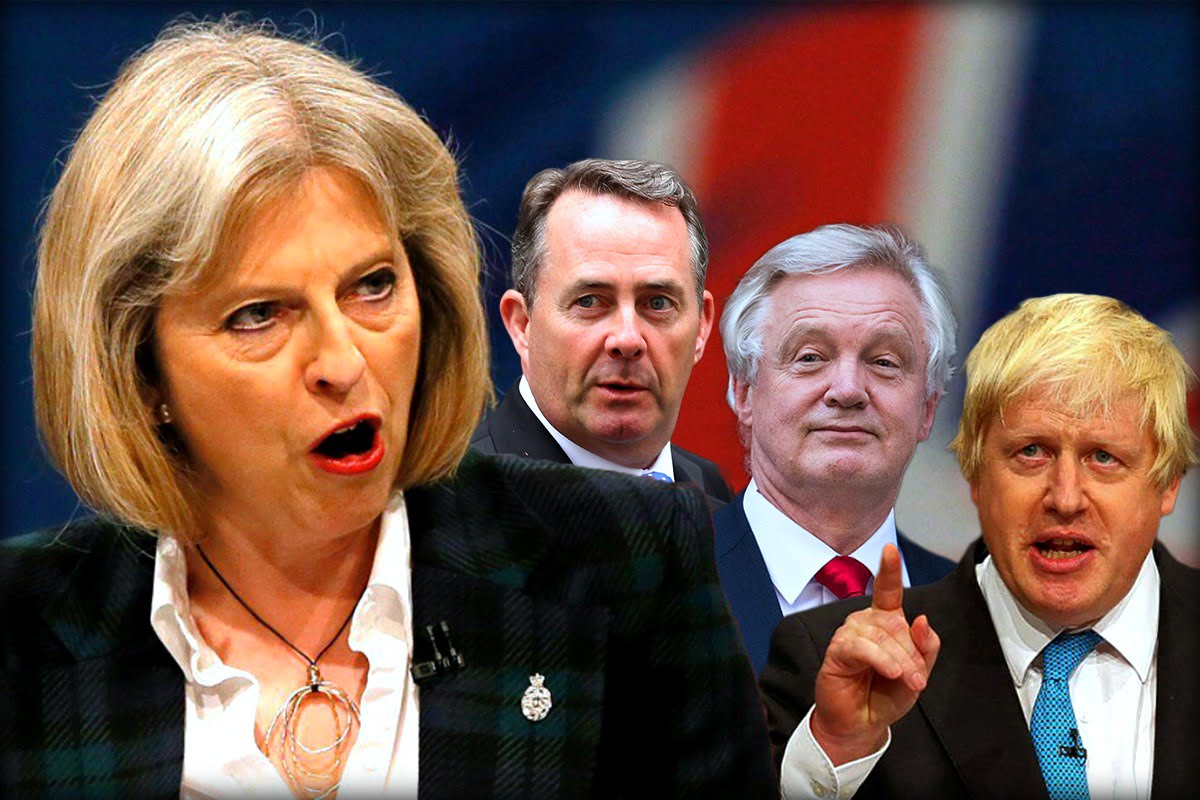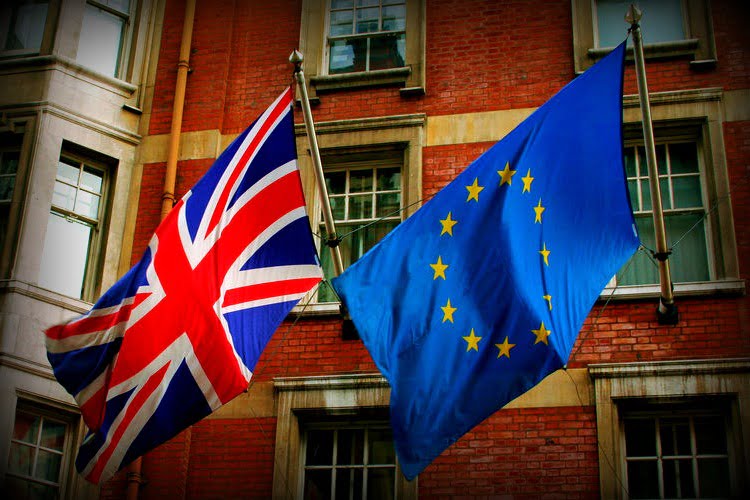With the shock defeat for the Tory government in the High Court yesterday, the turmoil arising from the Brexit vote in June rumbles on. But this is only a foretaste of the storms that lie ahead. While MPs will not block Brexit, they can certainly delay it and water down any proposals. Prime Minister May faces months of clashes, guerrilla warfare, and an extremely unstable future.
With the shock defeat for the Tory government in the High Court yesterday, the turmoil arising from the Brexit vote in June rumbles on. But this is only a foretaste of the storms that lie ahead.
May attempted at first to consolidate her position as unelected Prime Minister by drawing leading Brexiteers into her cabinet and giving them top positions in the negotiations with Brussels. This was further underlined by her Tory party conference speech which, playing to the gallery, indicated her decision to press for a “hard” Brexit and trigger Article 50 next spring.
This strategy, which deliberately side-lined Parliament, has now been undermined by three High Court judges. If this stands, May could face a prolonged period of guerrilla warfare in Parliament, both in the Commons and the Lords, which could profoundly complicate the Brexit negotiations and even shipwreck the government.
Losing control
Apparently, the government now accepts that an Act of Parliament will be necessary to win the right to trigger the Article 50 exit notice. However to avoid this fate, the government has decided to challenge yesterday’s judgment in the Supreme Court.
The most immediate practical outcome is that May’s promise to invoke Article 50 by March 2017 has sailed out of the window. The appeals process alone will drag on for further weeks and months and if it fails, while MPs are unlikely to stop the triggering of Article 50, they could certainly delay it and attach conditions that the government will oppose, such as retaining close access to the single market.
It means that Theresa May could lose some control over the process. This could even raise the possibility of a snap general election, to resolve such a disagreeable stalemate. But all of Parliament will be wary of injecting further instability into Britain’s already unstable situation.
The charade of bourgeois democracy
Three unelected judges ruled that the Prime Minister could not use the “feudal” Royal Prerogative to invoke Article 50, thereby excluding Parliament. These judges are no guardians of democracy, but are attempting to preserve the position of the ruling class who are against Brexit altogether, let alone a hard Brexit.
If there was any doubt that June’s referendum was primarily a battle between two wings of the bourgeoisie, this has been aptly demonstrated by yesterday’s charade of one section of the bourgeois state – the courts – coming out on behalf of the interests of the bankers and big business against another section of the bourgeois state – the Tory government.
Gina Miller, the hedge fund manager who brought the legal challenge, described how Brexit had made her feel “physically sick”. This shows the strength of feeling against Brexit in “respectable” bourgeois circles.
Ultimately, big business will not accept exclusion from the single market, which the government threatened would happen if the free movement of people is not restricted. Legal commentators suggested it was odds-on the government will lose again in the Supreme Court, which very much suits the interests of big business. They hope the courts will clip May’s wings. Consequently, the pound jumped to $1.2448 after the court ruling, marking the approval of the markets.
Immediately, Nigel Farage, fresh from his Trump tour in the US, denounced the ruling; “I worry that a betrayal may be near at hand.” The country could be heading for “a half Brexit”, he warned. “If this is so, they have no idea of the level of public anger they will provoke.” These shenanigans will certainly add fuel to the fire, but UKIP is in no position to lead such an outcry as it is busy tearing itself to shreds.

Mutinies and clashes
At the time of the Referendum the Commons had about 480 MPs in favour of Remain, with only about 150 opposed. If May is forced to bring the question of Brexit negotiations into an open Parliamentary debate, this will set the scene for battles galore over this thorny issue.
Pro-EU MPs were gleeful, hailing the victory for “democracy”. Pro-EU Tory grandee Ken Clarke, who really reflects the dominant view of the ruling class, among other MPs, welcomed the decision and the opportunity to vet the process instead of it being decided in Cabinet committees of “squabbling colleagues”. He concluded: “The vote was we leave the EU – but it was silent on the terms.” Former chancellor George Osborne also signalled he would fight a hard Brexit in the Commons, saying: “I would be arguing for the closest possible trading and economic relationship with Europe, outside of the EU.” They were joined by Hillary Benn, saying “The public made that choice in the referendum and I think Parliament should uphold that.”
Again, this illustrates the contentious debate and bitterness that will accompany the Brexit negotiations. The government will not find this plain sailing. While MPs will not block Brexit, they can certainly delay it and water down any proposals. There will be months of clashes. May will be forced to repeatedly face down a mutiny of pro-EU MPs in order to stick to her plans. But the best laid plans can go awry.
A spokesperson for Mrs May put a brave face on: “This judgment is not going to derail things.” Behind the calm face, however, panic is beginning to set in. With a slim parliamentary majority of 15, May’s Brexit plans have been thrown into turmoil. All the old demons of hard and soft Brexit will resurface with a vengeance. And this is before the tough negotiations with the EU have even started. The omens are not good for Theresa May and her government. They can break their teeth over these Brexit negotiations – and end up breaking their back.
Defend Corbyn – fight for socialism!
The shockwaves will not only be confined to the Tory Party, however. The Labour Party, and especially its right wing, is also split on this question. Since the Referendum result, Blairite MPs such as Chuka Umunna have openly come out in favour of hard Brexit, fearing electoral defeat and unable to do anything more than echo the right-wing press. On the other hand, many on the right of the party still hope they can avoid Brexit altogether. Tony Blair himself has published his “rallying cry for the 48%”, a rambling treatise which lays out the following plan: wait for the crisis and the increase in prices to demoralise Brexit voters and then keep their “options open”, including another referendum to get the ‘right’ result – a touching lesson in democracy from the man who misled Parliament and the people over Iraq.
It is therefore by no means ruled out that whichever way he whips his MPs, Corbyn could face yet another attempt to undermine his authority from a part of the PLP. This means that if and when the terms of Brexit are debated in Parliament all hell could break lose, to put it bluntly, with rebellions on both sides of the floor.
With the ruling class, its government and its agents in the Labour Party split and disoriented, there has never been a better and more important time for us to organise and fight for a unified, left-wing Labour Party and a socialist Labour government.






